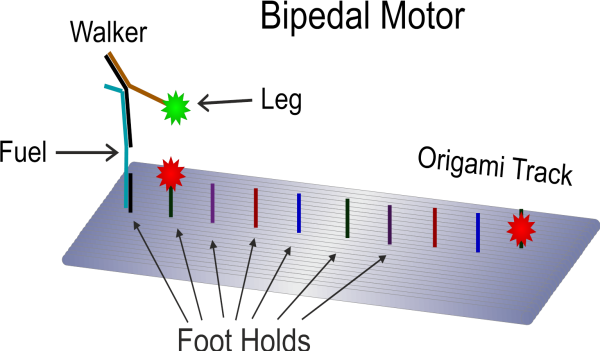
Toward Fast and Efficient DNA-Based Molecular Machines: using Single-Molecule Fluorescence and Microfluidics
Toma Tomov, Chemistry Department, Ben Gurion University of the Negev, Beer Sheva, Israel
Roman Tsukanov, Chemistry Department, Ben Gurion University of the Negev, Beer Sheva, Israel
Yair Glick, Nano Technology Institute, Bar Ilan University, Ramat Gan, Israel
Miran Liber, Chemistry Department, Ben Gurion University of the Negev, Beer Sheva, Israel
Yaron Berger, Chemistry Department, Ben Gurion University of the Negev, Beer Sheva, Israel
Doron Gerber, Nano Technology Institute, Bar Ilan University, Ramat Gan, Israel
Eyal Nir, Chemistry Department, Ben Gurion University of the Negev, Beer Sheva, Israel
The manufacturing of well-functioning machines is a major challenge of modern technology and science. DNA nanotechnology is probably the most promising path towards realization of this goal on the molecular level. It was demonstrated that DNA based devices and motors could potentially be used in a variety of applications. However, despite variety of architectures and operation principles, devices and particularly motors, still suffer from slow and incomplete stepping reactions along with harmful side products. For the technology to be applicable, it is essential that the devices will operate as commanded, with high operating efficiency and speed, while maintaining structural integrity.
Wishing to understand the reasons for these unwanted reactions and offer solutions, we used a non-autonomous bipedal DNA motor. Upon sequential introduction of fuels and anti-fuels, the motor strides on a DNA track which is embedded on a DNA-origami. We utilize single-molecule FRET/ALEX and TIRF spectroscopy along with Microfluidics technology to study the structure, interaction, kinetic and yield.
We demonstrate that careful analysis of motor kinetics promotes rational design that significantly can improve motor operation over unprecedented distance, processivity and speed. The motor preforms 36 steps with 50% overall yield, which is equivalent to more than 99% yield per chemical reaction, and the stepping rate can be as fast as several seconds.

Organized & Produced by:

POB 4043, Ness Ziona 70400, Israel
Tel.: +972-8-9313070, Fax: +972-8-9313071
Site: www.bioforum.co.il,
E-mail: bioforum@bioforum.co.il